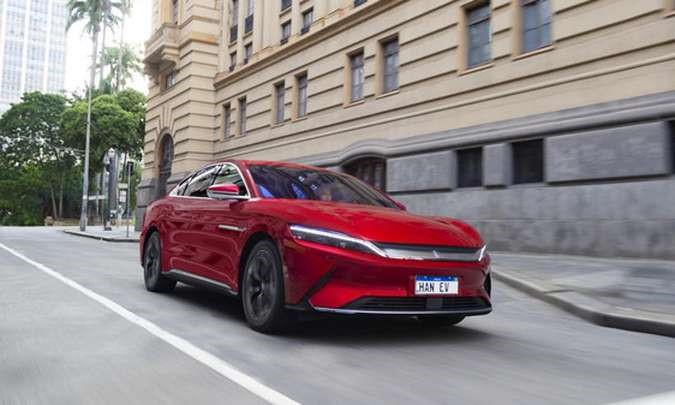In 2023, the automotive industry is undergoing a seismic shift, with electric vehicles (EVs) gaining unprecedented momentum. According to Bloomberg Green, global EV sales surged by 70% in the first half of the year, signaling a growing consumer preference for sustainable transportation. This surge prompts a critical comparison: EVs vs hybrids vs traditional gas cars. As we navigate this pivotal moment, understanding the benefits and future innovations of each vehicle type is essential for informed decision-making.
In this article, we’ll explore the latest trends and innovations in EVs, hybrids, and gas cars. By the end, you’ll have a clearer picture of which option might be best for you, armed with the knowledge of technological advancements and market dynamics.
The Rise of Electric Vehicles in 2023
EV Popularity and Advancements
Electric vehicles have become the poster child of sustainable transportation, thanks to their zero emissions and decreasing costs. In 2023, EVs are not just an eco-friendly choice but a practical one. According to InsideEVs, battery prices have dropped by 89% over the past decade, making EVs more affordable than ever. Key players like Tesla, Rivian, and Lucid Motors have introduced models that boast ranges of over 400 miles on a single charge, eliminating range anxiety for most drivers.
Benefits of EVs:
– Environmental Impact: Zero tailpipe emissions and lower overall carbon footprint.
– Cost Efficiency: Lower maintenance costs and eligibility for government incentives.
– Technological Edge: Advanced features such as autonomous driving and over-the-air updates.
Charging Infrastructure
One of the main concerns for potential EV buyers is charging infrastructure. However, 2023 has seen significant improvements. According to Electrek, the number of fast-charging stations worldwide has increased by 30% this year alone. Companies like Volkswagen and Ford are investing heavily in expanding the charging network.
How to Charge Your EV:
1. Home Charging: Install a Level 2 charger at home for overnight charging.
2. Public Charging: Use apps to locate nearby fast-charging stations.
3. Workplace Charging: Many offices now offer charging stations for employees.
Hybrids: The Best of Both Worlds?
Hybrid Vehicles in the Current Market
Hybrids offer a blend of gasoline and electric power, providing flexibility and extended range. In 2023, hybrids remain a popular choice for those not ready to fully commit to electric. Brands like Toyota and Hyundai continue to innovate, offering models with improved fuel efficiency and lower emissions.
Advantages of Hybrids:
– Fuel Efficiency: Combines electric power with gasoline to maximize mileage.
– Versatility: Ideal for long-distance travel without worrying about charging stops.
– Reduced Emissions: Lower emissions compared to traditional gas cars.
Hybrid Innovations
Recent advancements have enhanced hybrid technology. According to AutoCar, plug-in hybrids (PHEVs) have become more popular, allowing drivers to charge the battery for short trips without using gasoline. This year, Toyota’s new PHEV model offers an electric range of 50 miles, perfect for daily commutes.
Gasoline Cars: Still Relevant?
The Role of Gas Cars in 2023
While EVs and hybrids are gaining traction, gas cars still hold a significant market share. In certain regions, particularly where charging infrastructure is less developed, gas cars remain a practical choice.
Pros of Gas Cars:
– Availability: Widespread refueling infrastructure.
– Initial Cost: Often cheaper upfront compared to EVs and hybrids.
– Performance: Some models offer superior power and acceleration.
Future Outlook for Gas Cars
Despite their current relevance, gas cars face an uncertain future. With increasing environmental concerns, governments worldwide are implementing stricter emission regulations. According to Reuters Mobility, the EU plans to ban the sale of new gasoline and diesel cars by 2035, pushing manufacturers to pivot towards electric alternatives.
Making the Right Choice: What to Consider
Choosing between an EV, hybrid, or gas car depends on various factors, including lifestyle, budget, and environmental considerations. Here are some tips to guide your decision:
- Assess Your Driving Needs: Consider your daily commute, long-distance travel habits, and access to charging infrastructure.
- Budget Considerations: Look beyond the initial purchase price; calculate long-term savings on fuel and maintenance.
- Environmental Impact: Factor in your commitment to reducing your carbon footprint.
Where to Buy
For those ready to make a purchase, dealerships and online platforms offer a wide range of options. Brands like Tesla and Rivian allow direct online orders, while traditional dealerships provide the opportunity for test drives and face-to-face consultations.
Conclusion: The Road Ahead
As we look to the future, the automotive industry is poised for further evolution. With advancements in battery technology, autonomous driving, and renewable energy integration, the next decade promises exciting developments. Whether you choose an EV, hybrid, or gas car, staying informed will ensure you make the best choice for your needs.
What’s your take on the future of transportation? Are you leaning towards an electric, hybrid, or gas vehicle? Share your thoughts in the comments below and join the conversation about the future of mobility. As we embrace these changes, one thing is clear: the journey towards sustainable transportation is accelerating, and everyone can play a part in shaping the road ahead.

